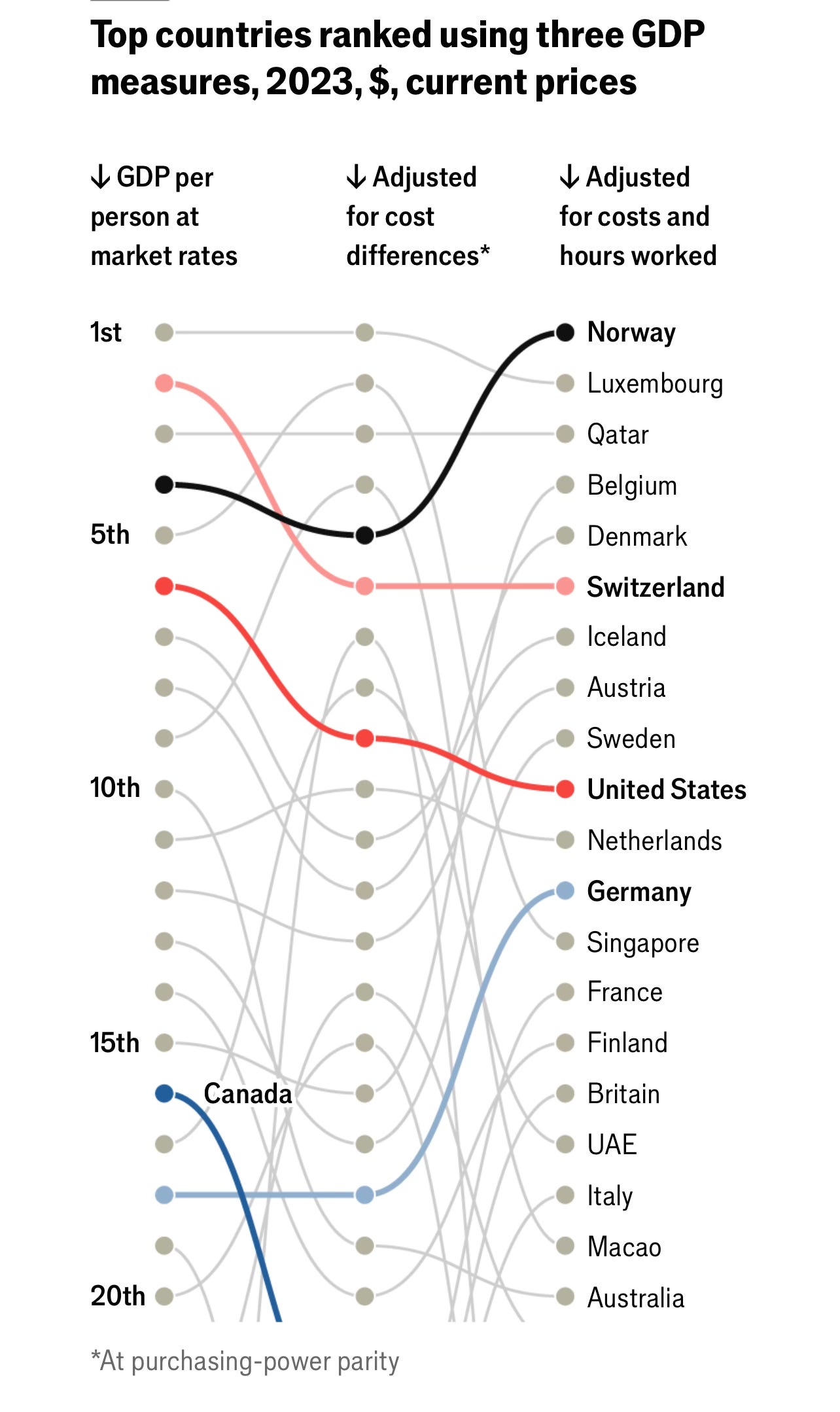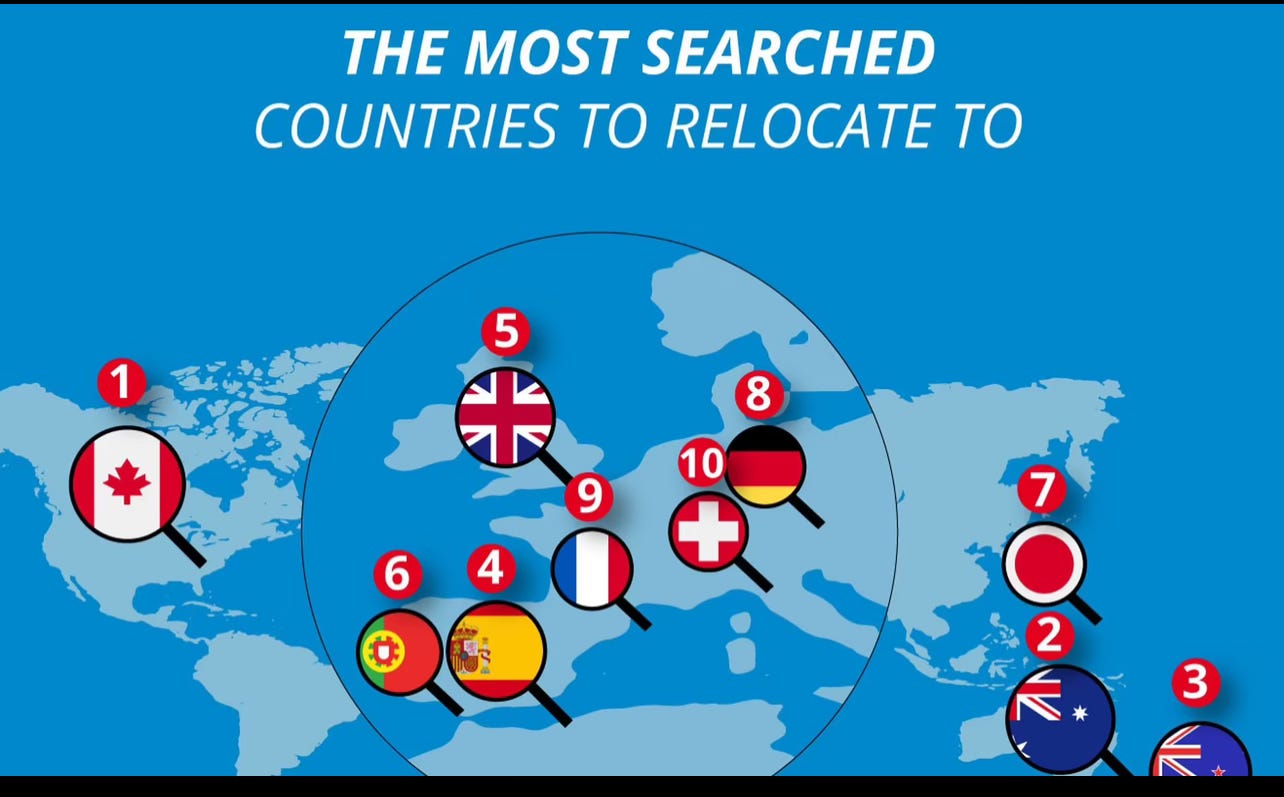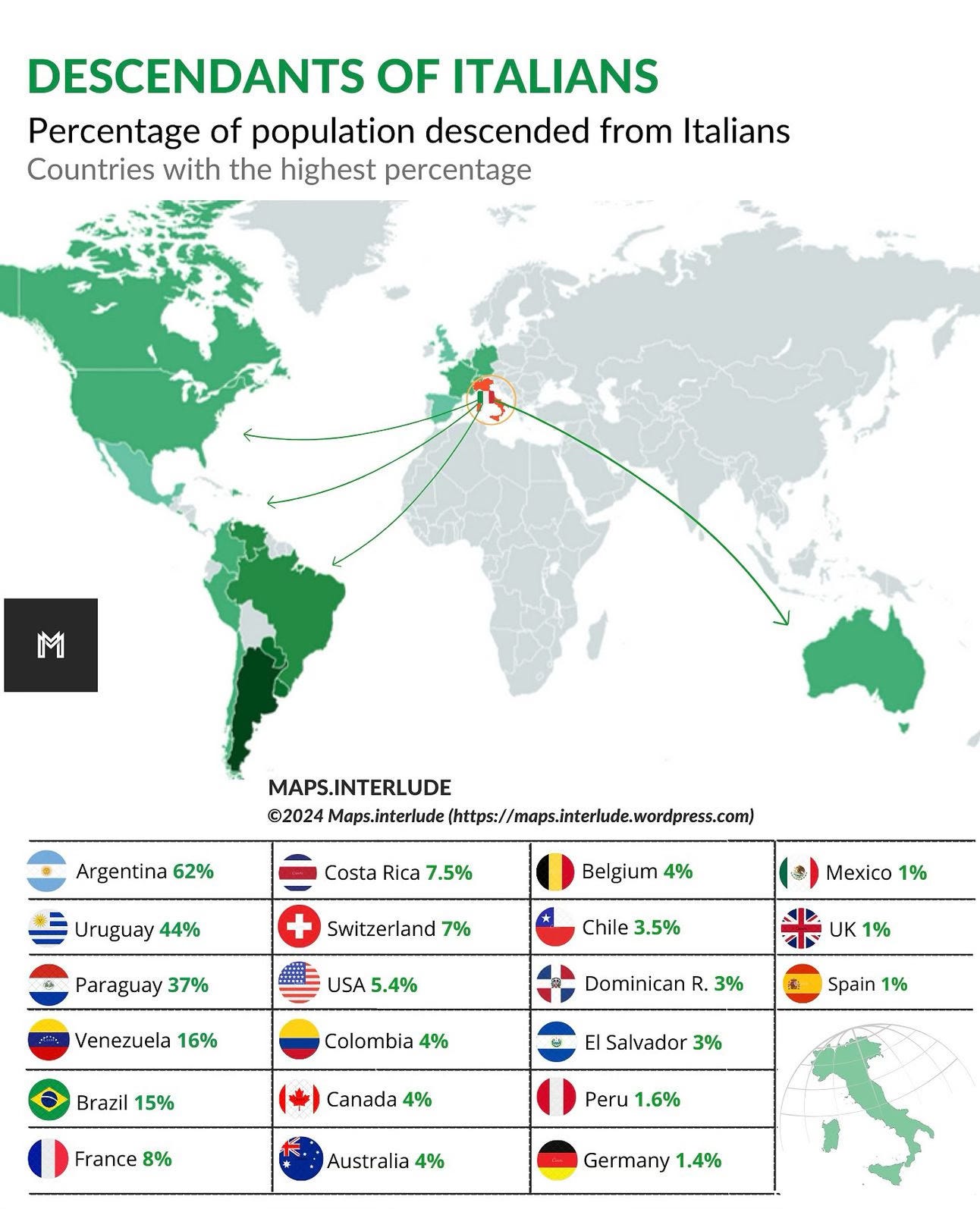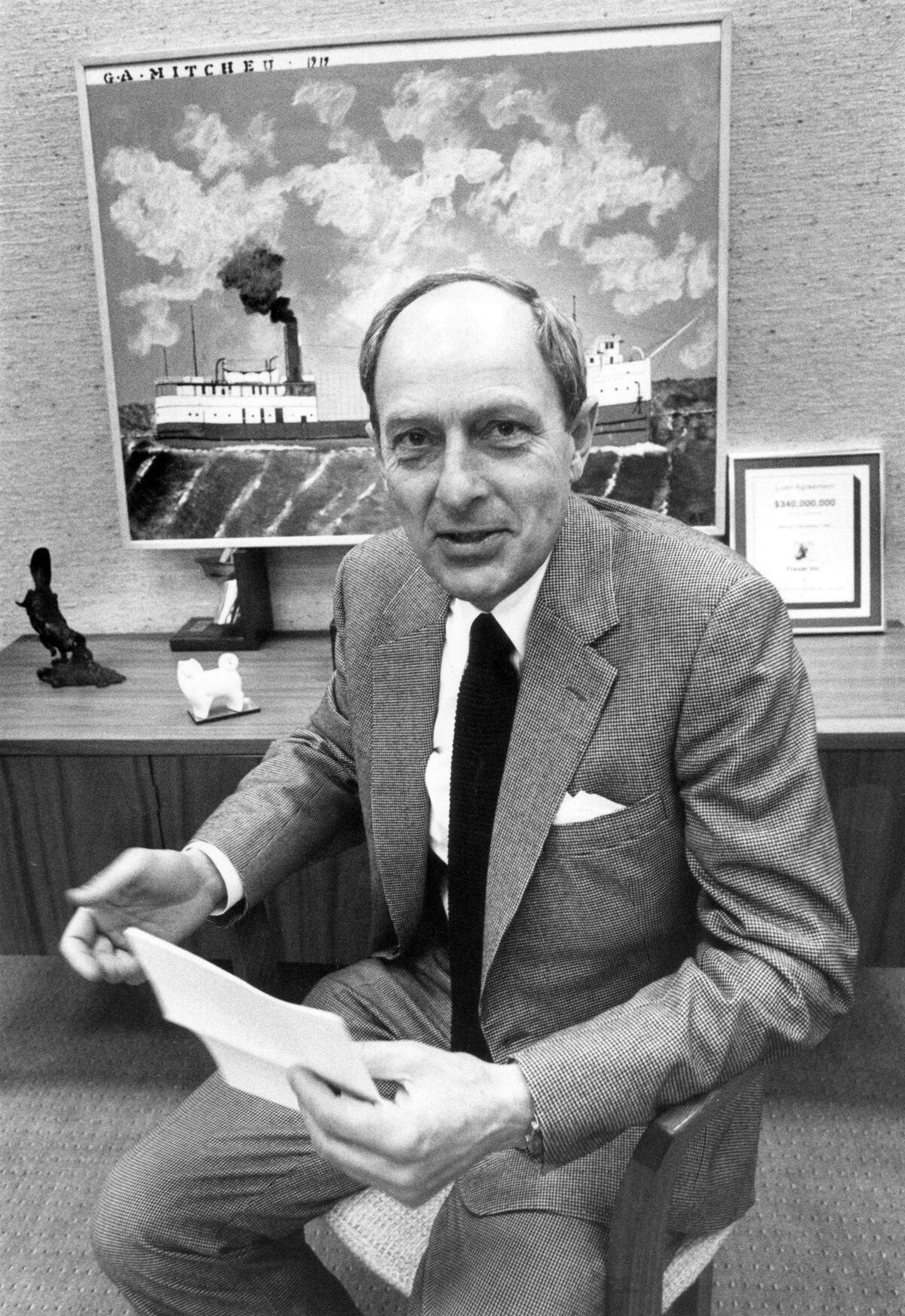Note: I am at a family function in western Canada (Edmonton) so this is a bit late, a bit short and perahps a bit different.
Wimbledon Win: For Player and Presenter
Carlos Alcaraz wins his second Wimbledon title and the Princess of Wales was given a standing ovation when she appreaed with her daughter Charlotte at the match.
Pay at the Top
Peanuts really when you think what even low end CEOs are paid.
Off the Chart: Just one Economist List That Tells You Justin Trudeau is Toast
But People Want to Come to Canada Anyway
The old `Dominions’ are one, two, three. Odd that the cold one is # 1.
The Nile from The Space Station
Egypt’s population is 108-million and as you can see from the lights at night, 95% of them live along the Nile and its Delta. Statistically it’s a big country with an average of 107 people per square kilometre. Central Cairo packs 17,190 people into a square kilometre. New York City, the most densely populated city in the United States is just 10,500 per square kilometre, but Manhattan stuffs 73,000 into one square kilometre.
,
You Say Potato and I Says Potahto
Accents in English fascinate me. There are said to be nine regional accents in Canada and the United States. The way I speak is radically different from a Texan. I put the subtitles on for some British TV shows with accents that are even hard for me to understand and I spent a lot of time in Britain. There are said to be 37 different accents in Britain. And the BBC seems determined to pick the most obscure ones to do the weather broadcast to Canada.
The Italian Diaspora
It’s hard to believe that Italians are such a small percentage of the Canadian population. Italian immigrants to Toronto transformed the city. Many of the second and third generations are rich and many are prominent in politics. There is a part of central Toronto known as Little Italy but few Italians live there now; they have moved north to the subrub of Vaughan.
Yorkie Love
On Lakeside in Knowlton, Quebec this week. Catch the doggie goggles.
Essay of the Week
Canada’s federal government doesn't like mining. Much too dirty. It has passed a rule that mining takeovers have to be in the national interest. Here is an obit I wrote in 2016 about a man who was a giant in the Canadian resource game: trees and rocks.
Adam Zimmerman, who died on Oct. 19 at the age of 89, ran Noranda, one of the largest natural resource companies in Canada. Under his management it shifted its focus from rocks to trees, especially after it bought MacMillan Bloedel in 1981. At the time it was Canada’s largest corporate takeover.
He was the ultimate establishment man, with 41 corporate directorships ranging from the TD Bank to Algoma Steel to Canada Packers; he was a member of seven clubs. But he was an establishment man with a twist. As an undergraduate, instead of studying commerce, he did his degree in philosophy; he was a strong Canadian nationalist and unlike most people in the business community he was against free trade, and he disapproved of the Bank of Canada pushing the dollar higher in the early 1990s.
He was strong supporter of then-Liberal leader John Turner and his opposition to the Canada-U.S. Free Trade Agreement, the main plank in his platform for the 1988 election, which Mr. Turner lost. “We would become an appendage of the American economy and the American economic system,” Mr. Zimmerman told the Toronto Star before the election. “It’s not popular for a businessman to say this.”
His major objection to the free trade agreement was that softwood lumber was not treated fairly in the deal. His ideas on free trade and the value of the Canadian dollar were in sharp contrast to the published views of the C.D. Howe Institute, the business-financed think tank, where Mr. Zimmerman was chairman in the early 1990s.
“During this period we were writing positive things about free trade and we agreed with the Bank of Canada reining in inflation. He was a Liberal-leaning guy in a political sense,” said Bill Robson, now president and CEO of the C.D. Howe Institute, but then a junior economic researcher. Mr. Robson remembers getting a note on the subject from Mr. Zimmerman, which at first made him nervous.
“All he said was it would be better if we made the report more readable,” said Mr. Robson. “He certainly had reservations about free trade and monetary policy, but he never interfered in any way.”
Adam Hartley Zimmerman was born on Feb. 19, 1927, in Toronto, the son of Adam Hartley Zimmerman and Ethelwyn Ballantyne. He spent his early years in Niagara Falls, N.Y., where his father was working. He returned to Toronto to start school at Upper Canada College, living with his grandmother a few blocks away in Forest Hill. He then went as a boarder to Ridley College in St. Catharines, Ont.
“He loved Ridley and he sent all his grandchildren there,” said his wife, Barbara McDougall. “He liked most sports. He became a manager of two of the sports teams because he was too small to play at the time.”
Before he even finished high school he had joined the forest products industry, working at a summer job at the Marathon Pulp mill, in Marathon, Ont. He graduated from high school in 1944 and joined the navy and went to Royal Roads, the military college in British Columbia. He was too late to serve in the war, but stayed in the navy for several years, retiring with the rank of lieutenant.
He then went to Trinity College at the University of Toronto, where now just under six feet, he played football for the Varsity Blues. There were rumors that the Toronto Argonauts were interested in him, but he wasn’t interested in them. Later in life he was instrumental in saving the university’s football program. Though he may have projected corporate gravitas, his whimsical side showed at university: he drove an old hearse to parties.
His first job was as a salesman for Procter & Gamble selling laundry soaps such as Duz, Oxydol and Tide to grocery stores. In the 1950s, Mr. Zimmerman moved to the strait laced world of accounting at Clarkson Gordon, where he reviewed ledgers and invoices by day and did a correspondence course at night while he worked toward his chartered accountant certification. One of his early audits was at Noranda Mines then Canada’s second largest copper producer and third largest gold miner with other mining interests, mainly in Ontario and Quebec. J.Y Murdoch, the president and one of the founders of Noranda hired young Adam Zimmerman, as he later said, without “head hunters or batteries of psychological tests.”
When Mr. Zimmerman arrived at Noranda Mines’ head office in 1958 he found it a bit disorganized. “My boss was a blinkered alcoholic … [who] questioned my every move,” he wrote in his 1998 memoir, Who’s in Charge Here Anyway? “Everything was done on a back-of-the-envelope basis.”
Within the Noranda group of companies Mr. Zimmerman specialized in forest products. As the New York Times reported in 1981, “He has been responsible for the buildup of Noranda’s forest products division from several bankrupt sawmills acquired in 1961 to its present position as one of Canada's largest forest products operations.”
Mr. Zimmerman was in charge of the 1981 negotiations to increase Noranda’s small share in British Columbia forestry giant MacMillan Bloedel to control. He had been at a meeting of the Canadian Pulp and Paper Association in Montreal and people were surprised that he kept leaving the room. “He was negotiating the MacMillan Bloedel deal on the phone next door,” said Tony Rotherham who was in the meeting.
Noranda’s bid was successful and Mr. Zimmerman became chairman of a new group called Noranda Forest, which held all Noranda’s forest products holdings. Many people in B.C. disapproved of an eastern Canadian firm buying the province’s crown jewel of forestry.
At the same time Noranda Inc., the parent company, was fighting off Edper, a firm controlled by the Bronfman family, and its subsidiary Brascan, which was a 15-per-cent shareholder of Noranda. In his book Too Big to Fail, author Walter Stewart said one reason Noranda bought MacMillan Bloedel was to protect it from being taken over by Brascan. “… make Noranda that much harder to swallow, because it was swollen by another company almost as large as itself.”
Brascan did take a controlling interest in Noranda. “As the months passed my mood changed towards our Brascan masters. I very quickly realized that these guys weren’t going to be passive owners,” said Mr. Zimmerman in his book.
He saw the takeover as financial engineering, something of which he disapproved.
“These Brascan fellows were doing something for a totally different reason. They didn't know anything about what we were doing, they just liked the prize,” he said in 1997. “Brascan is merely the most conspicuous example of how these catch-all conglomerates exist primarily to gratify their owners’ egos.”
“Adam’s business philosophy was [that] you were building an enterprise,” said his second wife, Barbara McDougall, a former Conservative member of Parliament. “Brascan broke it up, shareholder value and all that.”
In the intervening years, Adam Zimmerman ran the company and was modest about his own achievements there.
“My duties at Noranda were straightforward. The minerals were taken from the earth and trees cut down for the manufacture of useful products. Like it or not, these activities are integral to the nation’s well-being. The forest sector is Canada’s largest net exporter by far,” Mr. Zimmerman wrote. He spent many lunches and dinners on the rubber-chicken circuit, giving speeches defending the natural resources sector and business overall.
“I want to advance the notions that business is an honourable pursuit, that good and honest people are involved in business endeavours and that beneficial things often happen as a result of their efforts.”
Like many people, Mr. Zimmerman was sometimes surprised by other people’s opinions of him. In his book he talks about a flight across Canada in the corporate jet with Ray Smith, then president of MacMillan Bloedel. Mr. Zimmerman said the two were “wary friends,” since Noranda had just bought MacMillan Bloedel and he was now its chairman.
Mr. Zimmerman described how he loved working in a business that took him over Canada from B.C. to New Brunswick. He was taken aback at his travelling companion’s reaction.
“Smith looked at me and laughed. ‘You,’ he said, ‘are the epitome of the effing Eastern establishment.” There followed a long silence, and Mr. Zimmerman said he thought Mr. Smith was wrong, and there was no Eastern conspiracy.
As the public face of Noranda Forest, Mr. Zimmerman took a lot of heat from environmentalists, from the Sierra Club in Canada to activists in the Australian state of Tasmania, where Noranda Forest hoped to build a pulp mill. He fought back in public forums and meetings. But perhaps he took the most heat at his own dining room table.
“Dad found himself in a family of environmentalists, historians and artists,” said his oldest child, Barbara, in her eulogy for her father. “Many a tough question he had to answer about the forest industry at our family dinner table. But he listened. … He knew the industry could do better and was open to suggestions.”
None of his four children went into business. His daughter Barbara is a biologist who works in the Amazon with indigenous groups. In the late 1980s she convinced her father to spend $50,000 a year to support a program of the World Wildlife Fund.
“I’d have to tell you Barbara influenced me a lot more than I’ve influenced her on environmental matters,” Mr. Zimmerman said in a 1988 interview.
In many ways his family life and his work life were separate. “Dad descends from his tower at King and Bay and goes home to 15 Edgar Avenue in Rosedale, where he must wonder: ‘Who are these people living here?’” his late daughter Kate said at his 70th birthday party.
Mr. Zimmerman loved his three-acre island at Go Home Bay, on Georgian Bay. His grandparents bought it in 1911 and the family would spend long stretches there in the summer, making the one-hour trip in a boat from Honey Harbour. There Mr. Zimmerman would tinker in his boat house.
He was proud of helping establish the University of Northern British Columbia in Prince George. He was an officer of the Order of Canada. In 1967 when the order was first awarded, he accepted his father’s Order of Canada since the elder Adam Zimmerman died between the time he was named and the day of the ceremony.
Mr. Zimmerman is survived by his wife, Barbara MacDougall; his three children, Barbara, Thomas and Mary; and four grandchildren. His first wife, Janet Lewis, from whom he was divorced in 2000, died in 2012, and his daughter Kate died in 2000.













